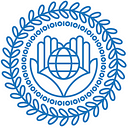Securing Democracy at Home — What We Can Learn From the Cold War
As President Biden settles into the White House, he confronts a series of crises few presidents have faced in American history. From a devastating pandemic that has killed nearly 500,000 Americans and plunged millions into economic despair, an attempted insurrection by his predecessor that took five lives and revealed the depths of our divisions, to urgent calls to address centuries of racial injustice and harm, President Biden is facing challenges of such magnitude that they will determine the very future of democracy in the United States.
The challenges facing the nation require absolute clarity from the president regarding the scope and gravity of these threats, committed leadership to develop a bold and comprehensive plan to confront them, and a vision of the future that engages the American people in this effort. The future of American democracy is on the line and President Biden, by temperament and experience, can meet these challenges by looking at two of his predecessors for guidance, Franklin D. Roosevelt and Harry S. Truman.
Throughout their administrations, Roosevelt and Truman faced the Great Depression, the rise of fascism at home and abroad, the destruction of Europe after World War II, and they both recognized that without clarity and bold action, democracy at home and abroad would not survive. Roosevelt prepared the country to fight and defeat fascism and galvanized the nation to rebuild the economy and restore hope. Truman recognized that a shattered Europe must be rebuilt, and implemented a massive social and economic reconstruction effort to preserve democracy as the Soviet Union’s Iron Curtain descended over Europe.
We are now at a moment as defining to our nation as the Great Depression, the threat of fascism, and the need to rebuild Europe and nothing short of bold leadership from the President and Congress will save American democracy from further backsliding and growing authoritarianism.
In his first weeks in office, President Biden started to lay out a vision for a re-engaged U.S. by marshaling resources to accelerate the distribution of Covid-19 vaccines to the American people, rejoining the Paris Climate Change Agreement and the World Health Organization, and re-engaging with allies at home and abroad to confront the significant global challenges. And while these actions are critical and urgent, recognizing the future of American democracy is at stake and laying out a bold vision for securing democracy at home is essential.
The President can make a bold and important step in that direction by calling on Congress to launch a domestic equivalent of the National Endowment for Democracy (NED) here at home — The Center to Secure American Democracy. In 1983, President Reagan, with bipartisan Congressional support, established the NED to promote and enhance democracy around the world and to counter authoritarian regimes from Central Europe to the Middle East. NED and its party affiliates, the National Democratic Institute and the International Republican Institute, worked together globally, across party lines, to support free and fair elections, promote the rule of law, and trained generations of emerging leaders on the values and principles of democratic institutions and norms.
A domestic initiative focused on securing and rebuilding American democracy will not only help us here at home but signal to the world that we remain committed to democracy and will tackle our own challenges the way we supported and encouraged others to do around the world. A U.S. democracy initiative can build off decades of experience and leverage the skills and expertise of thousands of Americans across the partisan divide here at home.
There are many challenges confronting our democracy from media disinformation that inflames and exacerbates our social and political divisions, to fewer opportunities for Americans across political, socio-economic, racial and geographic lines to know each other and reduce the misperceptions that cloud our view of fellow Americans. We need to invest in civic education, deepen our commitment to community service and encourage more ways for Americans to cooperate with each other which is the key to reducing division and dislike. While at the same time we also must address American’s grievances that are causing conflict including injustice, inequality and economic disparity. We have spent decades telling nations around the world how to build and sustain democracies and when to recognize when they are under threat. We would be wise to listen to our own advice and bring that hard-earned wisdom and experience home. Our democracy and our future depends on it.
Elizabeth Hume is the Acting President and CEO at the Alliance for Peacebuilding. She is a conflict expert and has more than 20 years of experience in senior leadership positions in bilateral, multilateral institutions and NGOs.
Tim Phillips is the founder and CEO of Beyond Conflict. Since 1992, Phillips has led Beyond Conflict in its efforts to help catalyze the peace and reconciliation processes in several nations, including Northern Ireland, El Salvador, Kosovo and South Africa.
